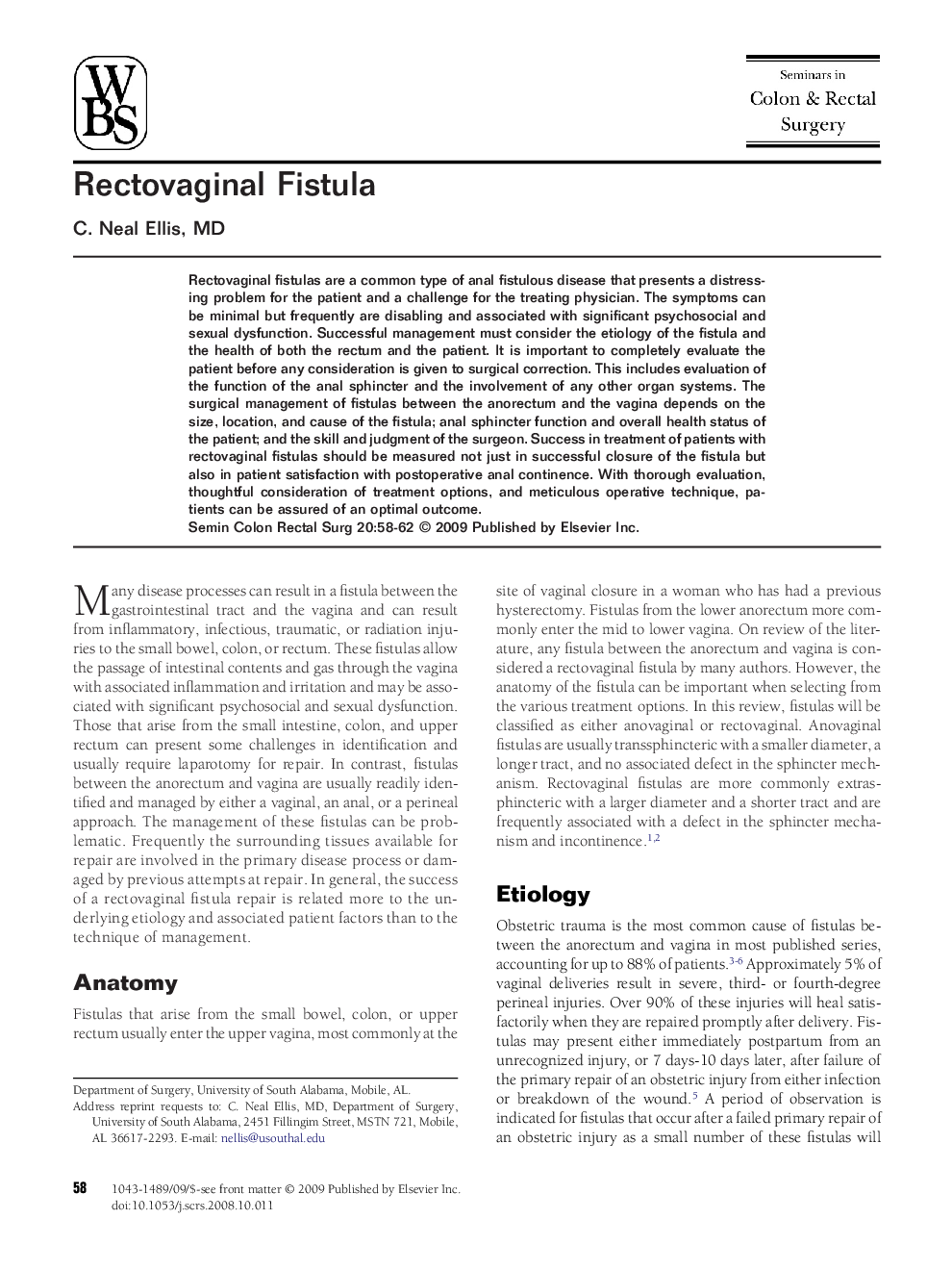| Article ID | Journal | Published Year | Pages | File Type |
|---|---|---|---|---|
| 3319547 | Seminars in Colon and Rectal Surgery | 2009 | 5 Pages |
Abstract
Rectovaginal fistulas are a common type of anal fistulous disease that presents a distressing problem for the patient and a challenge for the treating physician. The symptoms can be minimal but frequently are disabling and associated with significant psychosocial and sexual dysfunction. Successful management must consider the etiology of the fistula and the health of both the rectum and the patient. It is important to completely evaluate the patient before any consideration is given to surgical correction. This includes evaluation of the function of the anal sphincter and the involvement of any other organ systems. The surgical management of fistulas between the anorectum and the vagina depends on the size, location, and cause of the fistula; anal sphincter function and overall health status of the patient; and the skill and judgment of the surgeon. Success in treatment of patients with rectovaginal fistulas should be measured not just in successful closure of the fistula but also in patient satisfaction with postoperative anal continence. With thorough evaluation, thoughtful consideration of treatment options, and meticulous operative technique, patients can be assured of an optimal outcome.
Related Topics
Health Sciences
Medicine and Dentistry
Gastroenterology
Authors
C. Neal MD,
